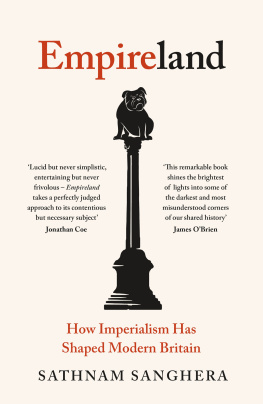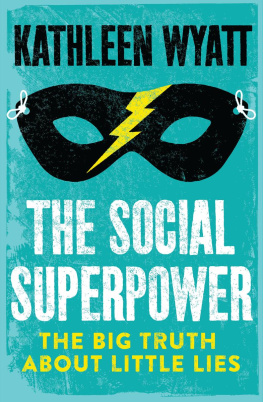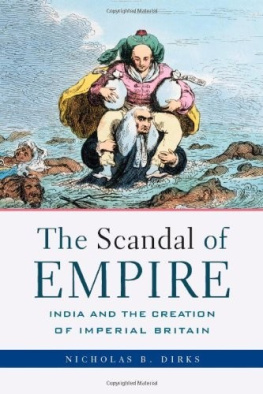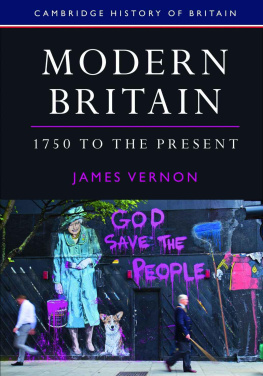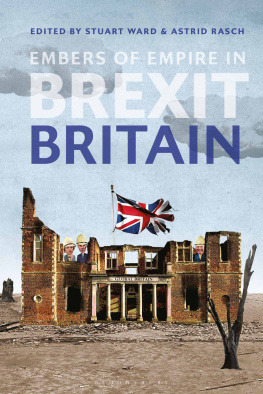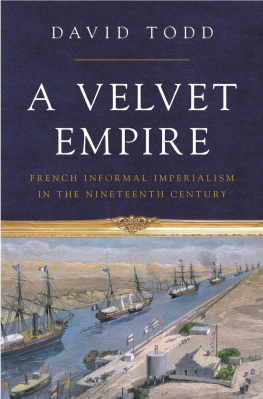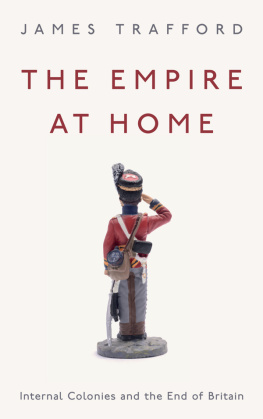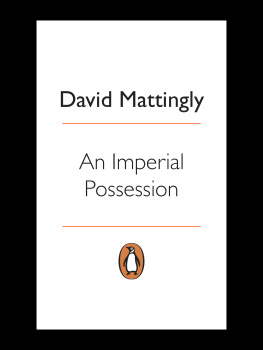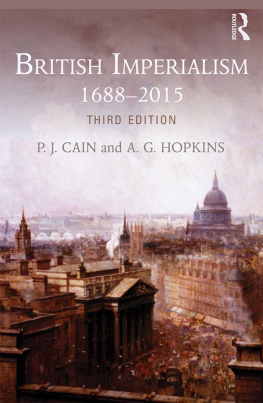Sathnam Sanghera
EMPIRELAND
How Imperialism Has Shaped Modern Britain

PENGUIN BOOKS
UK | USA | Canada | Ireland | Australia
New Zealand | India | South Africa
Penguin Books is part of the Penguin Random House group of companies whose addresses can be found at global.penguinrandomhouse.com.

First published by Viking in 2021
The Satanic Verses by Salman Rushdie published by Viking. Copyright Salman Rushdie, 1988.
Reprinted by permission of Penguin Books Limited.
Used by permission of The Wylie Agency (UK) Limited
Copyright Sathnam Sanghera, 2021
The moral right of the author has been asserted
Cover design by One Darnley Road
ISBN: 978-0-241-44533-4
This ebook is copyright material and must not be copied, reproduced, transferred, distributed, leased, licensed or publicly performed or used in any way except as specifically permitted in writing by the publishers, as allowed under the terms and conditions under which it was purchased or as strictly permitted by applicable copyright law. Any unauthorized distribution or use of this text may be a direct infringement of the authors and publishers rights and those responsible may be liable in law accordingly.
In memory of Robin Roberts
19532019
The trouble with the Engenglish is that their hiss hiss history happened overseas, so they dodo dont know what it means.
Whisky Sisodia, in Salman Rushdie, The Satanic Verses
Acknowledgements
This is a book about how modern Britain has been shaped by its past, and it would have been impossible to write without the enormous number of history books and articles I consulted during my research. I hope readers will consult the plethora of sources cited and I also hope that, in efforts to synthesize, I have not slipped at any stage into plagiarism. A small amount of material may have originally appeared in different form under my byline in The Times.
I will refer to the violent events of 1857, when Indian soldiers rebelled against their colonizers, as the Indian Uprising, though they also go by other names, such as the Indian Mutiny, the Indian Rebellion, the Sepoy Mutiny, the Sepoy Revolt and the First War of Independence, depending on your perspective. The changing nature of Irelands relationship to Britain is just as contentious, and for reasons that will become evident I will be talking about nineteenth-century Ireland as if it were an imperial colony, though it officially became part of the United Kingdom as a result of the Act of Union, passed in 1801.
I take the view that slavery was an aspect of the British empire: this nation wasnt the first into the slave trade, and the slaves werent taken from a part of the world that was part of British empire at the time, but they were transported to British colonies where they helped sustain vital imperial trade. Britain participated to such a degree that, according to the Financial Times, slave-related businesses in the eighteenth century accounted for about the same proportion of GDP as the professional and support services sector does today. As Linda Colley puts it in Captives: Britain, Empire and the World, 16001850: Africans transported as slaves across the Atlantic experienced an atrocity that was not peculiar to the British empire, but was certainly fostered by it.
Where useful, I will translate historical amounts of money into modern equivalents on the detailed advice of an economic historian: comparisons are difficult when it comes to long-run inflation calculations. And Im going to spend as little time as possible fretting about definitions: almost every term used in discussion of empire, from colony to commonwealth to colonialism, to say nothing of race and racism, can be contested, their meanings changing over time. Even the British empire itself has changed in definition, with Nicholas Canny explaining in an essay in The Oxford History of the British Empire that the adjective British meant little to most inhabitants of Britain and Ireland during the sixteenth and seventeenth centuries, and when England was described as an empire then it was with a view to emphasizing the long tradition of independence from foreign potentates, including the Pope, enjoyed by its monarchs through the centuries.
If we immerse ourselves in definitions, however, we will end up with yet another forbiddingly long academic book on empire, when my ambition is to create something resembling the opposite. Any errors are, of course, entirely my own, but I am grateful for the many people who have helped me navigate the almost infinite amount of material on the subject. Particular thanks to Emanuel Besorai, Helen Carr, Sarah Chalfant, Leigh Gardner, Peter James, Simran Kular, Amandeep Madra, Peter Mitchell, Lottie Moggach, Ferdinand Mount, Mary Mount, Rebecca Rideal, Angela Saini, Assallah Tahir, Ella Taylor, Kim Wagner, Colin Yeo, Alba Ziegler-Bailey.

1. Empire Day 2.0
My inbox at work is a nightmare. It currently holds 87,875 unread emails, a reflection not of my popularity (a colleague has more than 200,000), but of the fact that public relations professionals vastly outnumber journalists, and sending anyone they know news of the latest printer/teabag theyre promoting seems to be part of their job. Intensifying the tedium is that around a third of these messages begin with the greeting: I hope your [sic] well. To which I am always tempted to reply My well what? Never runs dry? or with a precise description of the well my family actually owns on a farm in India. But most enervating of all is the fact that another third of the messages are marketing some kind of awareness event.
It seems that when you cant think of any other way of generating attention for your cause, establishing an awareness day is always an option. There are thousands of them, from National French Bread Day to National Skipping Day, Nude Gardening Day and National Corndog Day. Pointless? Not entirely: Ive just been inspired by this research to look up corndogs and am now not only aware of corndogs but desire a corndog for my tea. Inane? More often than not. Which makes it even more surprising that nearly two years after I started looking into how imperialism has shaped modern Britain, I find myself wishing a new one into existence: Empire Awareness Day.
Despite a recent surge of interest in British colonial history, with statues being torn down (or defended), concert halls and schools being renamed (or councils refusing to submit to demands) and companies apologizing for past deeds (or trying to ignore it all), the effect of British empire upon this country is poorly understood. Many of us have learned more about British imperialism in a few months of statuecide than we did during our entire schooling, but there seems to be a view that if you pull down enough statues/change enough names or fight to keep enough statues up/refuse to change names, you can delete or defend British imperialism. But British empire defines us more deeply than these controversies suggest and an Empire Day could help explain how.
Such a thing actually existed for decades in the twentieth century. This half-day school holiday was established by the Earl of Meath, to celebrate the splendour of the empire on 24 May each year, the late Queen Victorias birthday, with the aim of creating a bond between imperial subjects and counteracting what Meath felt was lamentable ignorance about its achievements. The story goes that he once asked a bunch of teenagers whether they had heard of the Indian Uprising, a key event in empire history, and, to his dismay, received just one positive response. For a man who, at Eton, was told that brushing snow off his knees was spineless and unimperial, the implications were unconscionable. Convinced that such ignorance was widespread and undermining faith in civilizations greatest achievement, worried that the British empire might die like most other empires, he started campaigning for the establishment of an annual Empire Day, which had originally been pioneered in Canada in the 1890s.

